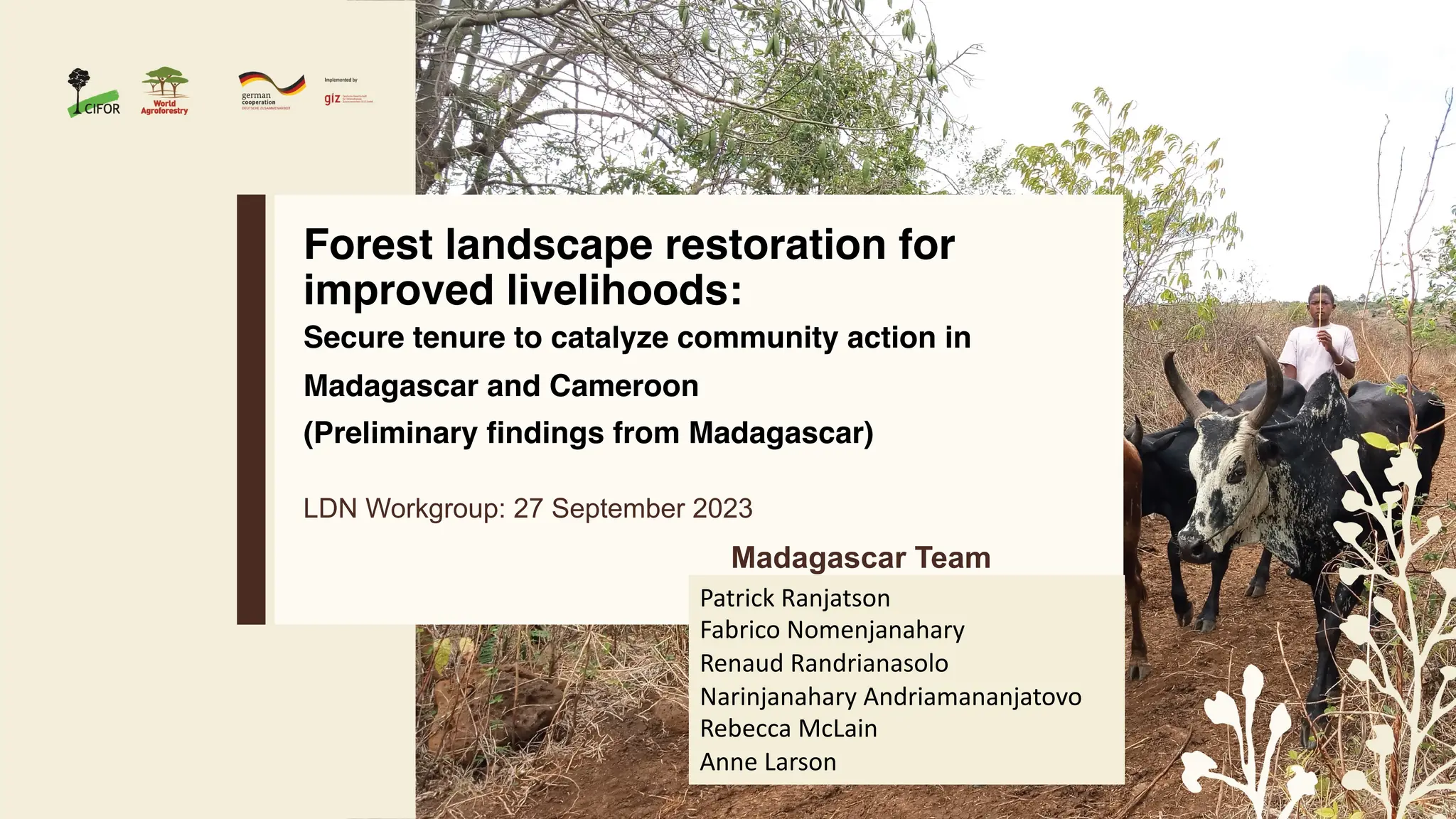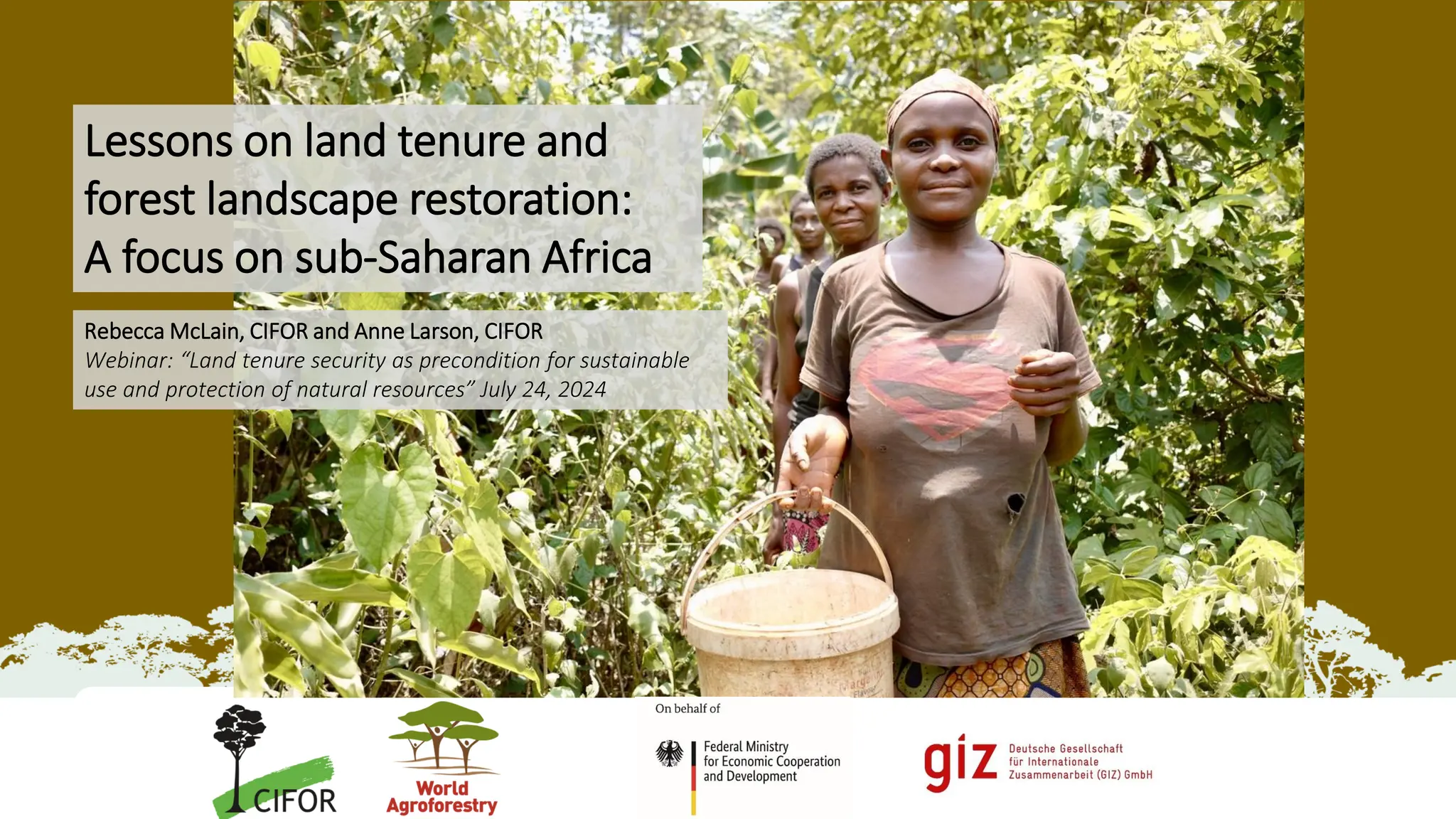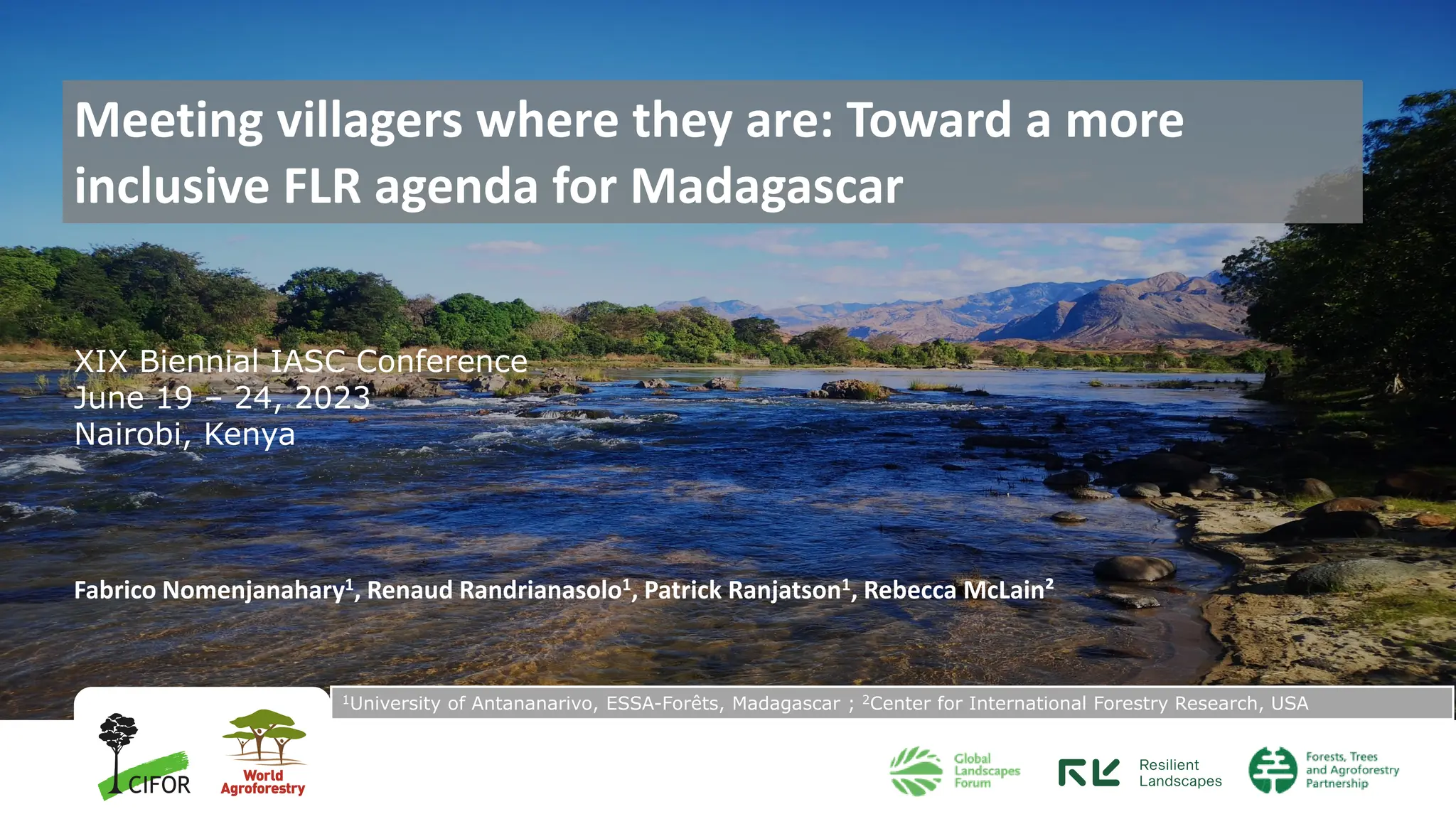Description
African countries have committed to restoring 113 million hectares of degraded lands and forests. Forest Landscape Restoration (FLR) is expected to yield multiple co-benefits, chiefly rural poverty reduction and enhanced food security. In order to meet these ambitious goals, FLR needs lands not only in areas that the government or private investors control directly, but also those currently occupied and used by communities. These lands, however, are usually under complex customary tenure regimes while legally owned by the state. Customary systems often go unrecognized, and tenure rights may be insecure.
How does this insecurity - at village and/or individual level - affect the uptake of FLR practices, and what can be done to address it? FLR experiences so far demonstrate that tenure insecurity is one of the central obstacles to scaling up restoration. This project addresses this problem through rigorous statistical analysis combined with in-depth qualitative research, including participatory research and multi-scalar engagement strategies. It develops and refines tools and co-designs policies and actions to support community tenure security, with the goal of significantly scaling up the adoption of restoration practices that support local needs, with particular attention to women. Addressing insecurity will build the foundation for empowered local women and men to engage in FLR and catalyze change.
The project purpose is to overcome the barrier that insecure land tenure presents for communities to adopt forest landscape restoration practices. It aims to increase community tenure security, and thus catalyze community uptake of FLR practices. Ultimately this project will directly contribute to the sustainability of Madagascar's and Cameroon's forest landscapes and will enable their respective national governments to deliver on their FLR commitments, while supporting local livelihoods (specifically food security).































